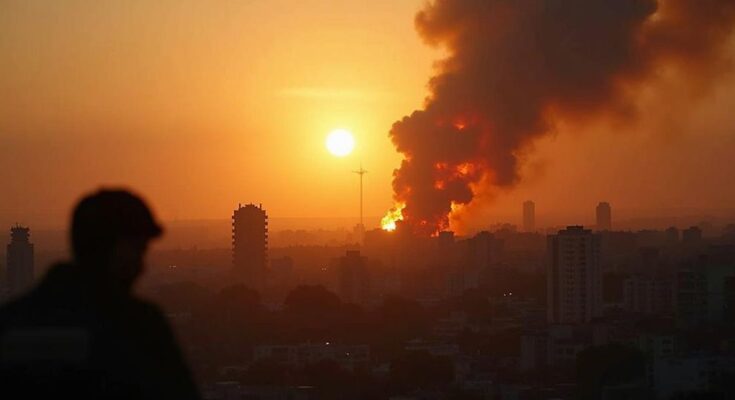Israeli airstrikes have recently hit southern suburbs of Beirut, targeting Hezbollah figure Hashem Safieddine, while parallel military operations in the West Bank resulted in the death of at least 18 Palestinians during an attack on the Tulkarem refugee camp. The strikes have drawn condemnation from Palestinian officials, raising concerns about regional stability and humanitarian violations.
Recent Israeli airstrikes have severely affected southern suburbs of Beirut, flattening residential buildings and resulting in numerous casualties. Among those reportedly targeted was Hashem Safieddine, a senior Hezbollah figure and cousin of the late leader Hassan Nasrallah. Reports from Axios indicate that Israeli officials claim Safieddine, regarded as a potential successor to Nasrallah, was hiding in an underground bunker at the time of the attack; however, it remains uncertain whether he sustained injuries or was killed in the strike. Further complicating matters, Israeli military operations extended into the occupied West Bank, where they conducted a deadly strike on the Tulkarem refugee camp. This assault resulted in the death of at least 18 individuals, within a crowded cafe, marking it as one of the most fatal air raids in the region in over twenty years. Among the casualties was Zahi Yaser Abd al-Razeq Oufi, who was described as a Hamas leader. The Palestine Liberation Organisation’s spokesman, Rawhi Fattouh, condemned this attack, decrying it as an act of “bloody, criminal aggression” and asserted that such violence would only exacerbate tensions within the region.
The ongoing conflict between Israel and various Palestinian factions has deep historical roots, marked by violence, territorial disputes, and fluctuating political relations. The recent escalation can be traced back to long-standing grievances and the geopolitical dynamics in the Middle East, particularly concerning Hezbollah’s influence in Lebanon and Hamas’ activities in the Palestinian territories. The attacks represent a significant increase in military operations, revealing the alarming trend of violence that threatens regional stability and civilian safety. Moreover, the involvement of high-profile figures such as Hashem Safieddine adds a layer of complexity to the situation, as both local and international actors closely monitor these developments.
The recent Israeli strikes in southern Beirut and the West Bank signal a troubling escalation in military tensions. The targeting of high-profile figures, alongside civilian casualties in densely populated areas, is detrimental to efforts for peace and stability in the region. Furthermore, the international community watches closely, as these actions may breach humanitarian laws and exacerbate the cycle of violence. Ultimately, the consequences of such military engagement are dire, and it is imperative for all parties involved to seek a de-escalation of tensions through dialogue and diplomacy.
Original Source: www.aljazeera.com




